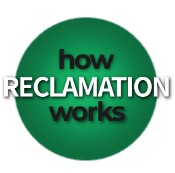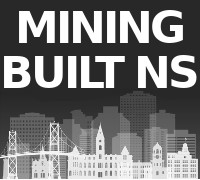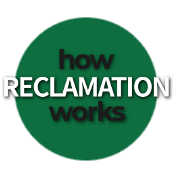- Why Mining Matters
- Jobs
- Safety
- Environment & Operations
- FAQ
- Links
- Fun Stuff
You are here
Isle Madame
Gypsum was discovered on Cape Breton’s Isle Madame in the 1800s. The most significant deposit is on the north side of the island, in the Martinique area.
The Lennox gypsum quarry opened around 1865. Prior to 1873, about 1500 tons were exported yearly but there was little production during the rest of the 1870s. A major hurricane in August 1873 destroyed the nearby wharf and building and the structures were not replaced in the 1870s. (In fact, the August Gale, as it was called, destroyed 900 buildings and 1,200 boats in Nova Scotia, and killed as many as 600 people, according to reports.)
Shipping in and out of Arichat, on the south side of Isle Madame, also dropped off in the 1870s. After their ships lay idle in Arichat for the winter, ship owners used to buy gypsum in Lennox and get an advance from the American customers that bought it. The advance covered the cost of the ships’ spring voyages to American ports where they would pick up other cargoes. This practice died out as extracting the best-quality Lennox gypsum became more expensive and US buyers refused to buy lower-quality gypsum. US companies instead turned to other sources of gypsum and Arichat ship owners focussed more on fishing.
In the latter 1800s and early 1900s, the Lennox quarry was operated by H. C. Higginson of Newburgh, New York. Higginson appears to have been involved in several companies, including the “H. C. Higginson Plaster and Marble Dust Works” company. Gypsum is the main ingredient in Plaster of Paris, which was used for things like mouldings and medical casts, and Higginson used Lennox gypsum in his plaster products.
In the late 1800s, there were dock facilities at Grandique Point that served the quarry. From 1886-1896, a total of 10,825 tons of gypsum were produced.
In describing Nova Scotia’s traditional role as a major supplier of gypsum, Higginson once wrote that “All mills on the Atlantic seaboard draw their supplies from Nova Scotia….” Nova Scotia is still a significant producer of gypsum – the walls in most Nova Scotia homes and buildings contain gypsum that was quarried here and was manufactured into wallboard in the US.
The Higginson family had some interesting hobbies. Their dog Dutchess, a King Charles Spaniel, was listed in the 1896 edition of the American Kennel Club Stud Book. Mr. Higginson was commodore of the Orange Lake Ice Yacht Club (sail boats on skates, basically).
The H. C. Higginson – a three-masted schooner, not the guy – sank near Boston on November 26, 1888 while transporting “plaster.” Its cargo was likely gypsum from Isle Madame since the words gypsum and plaster were often used interchangeably in that era.
The Lennox deposit contained significant amounts of anhydrite, which is likely the reason the quarry shut down since there were still large quantities of good gypsum in the quarry. Gypsum and anhydrite are closely-related minerals - the main difference is gypsum contains water and anhydrite doesn't – but it’s unhelpful to have anhydrite mixed into a gypsum deposit.
(Neat fact: Gypsum buried deep can turn into anhydrite as it dehydrates. Anhydrite can turn back into gypsum if it absorbs moisture from ground water.)
There were also a couple limestone quarries in the Lennox area, starting around 1860. Most of the limestone was shipped to PEI, heated to make lime and used in agriculture to adjust soil acidity and pH levels. By 1880, about 2500 tons per year were being sold to agents who sold the lime at retail to farmers.
The first permanent settlement on Isle Madame dates back to 1713. It is believed the island was named in honor of Madame De Maintenon, the second wife of Louis XIV.


















































































